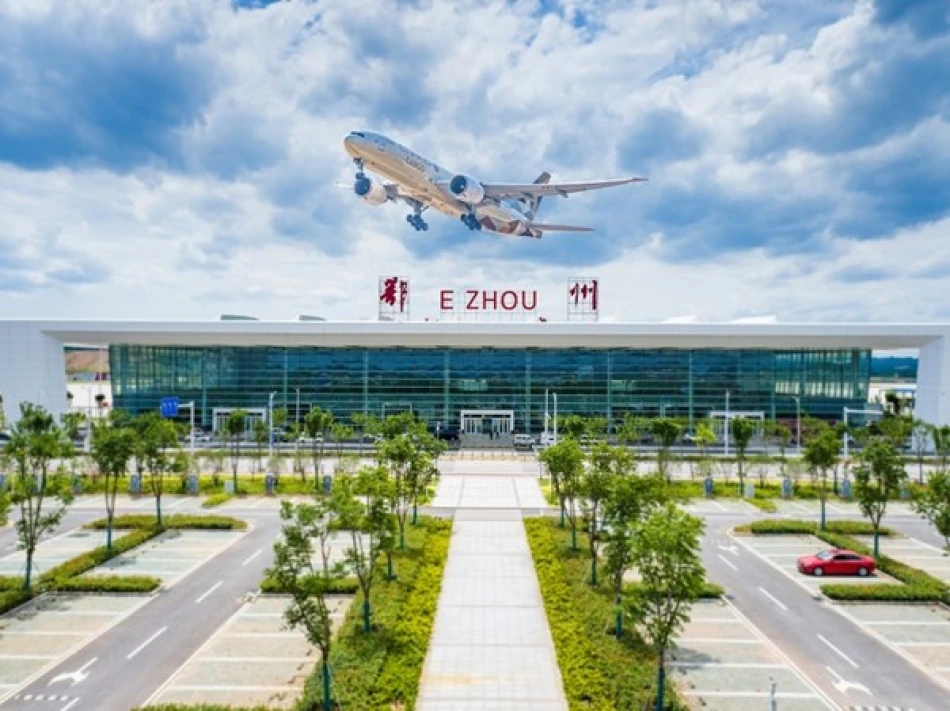
Union Air Freight Operates 275 Cargo Flights to and from Yichuan Airport in 24 Months
Etihad Cargo Doubles Down on China's First Dedicated Air Freight Hub
Etihad Cargo has transformed a strategic bet into a major logistics success, completing 275 flights to China's pioneering Ezhou Huahu Airport over two years. The UAE carrier's early commitment to Asia's first dedicated cargo airport is paying dividends as e-commerce and high-tech trade surge between China and the Middle East, positioning Abu Dhabi as a critical gateway for Asia-Europe cargo flows.
Breaking Ground in China's Cargo Revolution
When Etihad Cargo shifted its Chinese operations from Wuhan to the newly opened Ezhou Huahu Airport in August 2023, it became the first international airline to establish regular commercial cargo services at the facility. This first-mover advantage has proven strategic as the airport, operational since 2022, represents China's ambitious push to dominate global air freight logistics.
The partnership with SF Airlines has been central to this expansion. Starting with two weekly flights, operations have scaled rapidly to seven weekly flights by 2025, reflecting surging demand for time-sensitive shipments including e-commerce goods and advanced technology products.
Rapid Scaling Reflects Market Demand
The growth trajectory tells a compelling story of China-Middle East trade dynamics. Etihad operated 184 flights using Boeing 777 freighters, while SF Airlines contributed over 200 flights with Boeing 747s. By July 2024, the partnership had expanded to five weekly flights, adding a sixth in July 2024 and planning a seventh for 2025.
Charter services have shown even more dramatic growth, jumping from one weekly flight in 2024 to three weekly flights planned for early 2025, indicating strong demand for flexible, on-demand logistics solutions.
Strategic Infrastructure Advantage
Ezhou Huahu Airport's design as Asia's first purpose-built cargo hub provides operational advantages that traditional passenger airports cannot match. Located in China's Hubei Province, the facility offers exceptional domestic reach with 135 aircraft parking positions and two 3,600-meter runways specifically engineered for heavy freight operations.
Since 2023, the airport has handled over 43,000 tons of exports and 690 tons of imports to Abu Dhabi alone, demonstrating its growing role in global supply chains. This volume represents a significant shift in cargo routing patterns, with more Asian goods flowing through Middle Eastern hubs rather than traditional European gateways.
Market Implications for Global Logistics
Etihad's success at Ezhou reflects broader shifts in global trade patterns. The UAE's position as a neutral trading hub has become increasingly valuable as geopolitical tensions complicate traditional East-West trade routes. By establishing strong China connections, Abu Dhabi positions itself as an alternative to congested European hubs like Frankfurt or Amsterdam.
The focus on e-commerce and high-tech cargo aligns with China's export evolution from low-value manufacturing to sophisticated technology products requiring rapid, reliable logistics. This trend benefits specialized cargo carriers that can offer speed and reliability over cost alone.
Competitive Positioning in Asia-Middle East Corridor
Etihad's Ezhou strategy mirrors successful hub development models seen in other regions. Similar to how FedEx developed Memphis or UPS built Louisville, China is creating dedicated cargo infrastructure to support its export economy. By partnering early with this development, Etihad secures preferential access to a market that could reshape Asian logistics.
The partnership model with SF Airlines also reflects pragmatic market entry strategy. Rather than competing directly with Chinese carriers on domestic routes, Etihad leverages local expertise while providing international connectivity through Abu Dhabi's established network to Europe, Africa, and the Americas.
As trade tensions continue reshaping global supply chains, cargo carriers with diversified route networks and neutral hub locations like Abu Dhabi are likely to capture increasing market share from traditional logistics corridors.
Most Viewed News

 Layla Al Mansoori
Layla Al Mansoori






